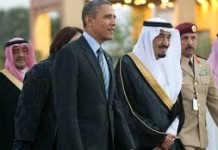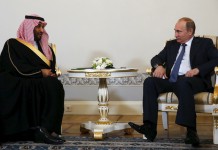Context
 General Stanley A.McChrystal’s sacking and his replacement with Gen.David H. Petraeus is a major development for the AfPak region and beyond. However, the Obama administration has been quick to point out that McChrystal departure is a change in personnel and not in policies. Nonetheless, many remain skeptical. It is also important to see how the US-Pakistan relations and military to military ties are impacted by this change.
General Stanley A.McChrystal’s sacking and his replacement with Gen.David H. Petraeus is a major development for the AfPak region and beyond. However, the Obama administration has been quick to point out that McChrystal departure is a change in personnel and not in policies. Nonetheless, many remain skeptical. It is also important to see how the US-Pakistan relations and military to military ties are impacted by this change.
Analysis
The Taliban are indeed happy. They believe the decision shows that the US policy on Afghanistan is falling apart. They are also under the impression that the American and NATO forces are demoralized and ready to go home. However, that is not likely to happen. The US simply cannot afford to abandon Afghanistan to the likes of Taliban and al-Qaeda. Also, Afghanistan is not Vietnam. Only 1,000 American soldiers have died here in the nine years of war compared to more than 58,000 in Vietnam.
There exist two streams of thought on how to interpret the present situation. According to one, US will leave abruptly under mounting causalities in Afghanistan. The other outcome foresees a more gradual but speedy withdrawal, once a regional settlement is in place. This will allow major players the desired stability and security while ensuring the interests of US and major players are not radically jeopardized.
Taliban and Jihadi Elements
For the Taliban supporters and Jihadis in Pakistan, the sacking of General McChrystal was a major blow to the American strategy in Afghanistan. Most of these people have interpreted the July 2011 withdrawal date of American troops announced by President Obama as the final year of the war in Afghanistan when the Taliban will recapture Kabul and once again rule the country. Thus their strategy is to escalate their activities in the region and to demonstrate that they have the initiative. President Obama’s statement, while it must have soothed some sections of the American public, did not go down well among the other countries in the region, and they have started preparing for both outcomes outlined above.
Pakistan Army
Pakistan has not officially reacted to the sacking of McChrystal, which to an average Pakistani mind is rather incomprehensible. Most people in Pakistan simply do not understand how a four star general could be forced to resign by a democratic government. When similar situations occur in Pakistan, it’s usually the democratic setup that ends up packing.
General McChrystal had developed good relations with senior leadership of the Pakistan Army, especially its chief General Ashfaq Pervaiz Kayani. While for some people the sacking of the general may have been a major dent in the US plan for Afghanistan, the fact is that General Petraeus is not a stranger in Islamabad. As the CENTCOM chief, he has been regularly meeting senior armed forces officers, including General Kayani.
The Pakistan Army will be carefully watching the leadership style of General Petraeus and the steps he will take now that he is in the saddle. The General Headquarters in Rawalpindi will be looking at how Petraeus deals with the surge in troops and the coming Kandahar campaign. Of interest will be whether the rules of engagement that limit close air support will be revised. The rules framed by Gen. McChrystal had reduced casualties among the Afghan civilians but at the same time made American troops rather vulnerable.
Of more concern for the Pakistanis will be how Petraeus employs counterinsurgency tactics and their impact across the border. As it is, Islamabad seems to believe that there would be no legitimate solution to the Afghan problem without involving particularly the Afghan Taliban in the peace process. On the other hand, Petraeus has stressed the importance of civilian participation in counterinsurgency strategy. Furthermore, the training of Afghan security forces will be closely watched by Pakistan. The country has offered to train the Afghan military and is deeply allergic to the Indians performing this role.
The Pakistan Army has been traditionally close to the Pentagon. As a result of the sacking of McChrystal, the GHQ would also like to closely watch the nature of evolving relationship between the US State Department and the Pentagon. In Iraq, the State Department’s role was rather marginalized. Not so in Afghanistan, but with the arrival of Petraeus, things may change.
Also a key aspect from the Pakistani point of view is the nature of relationship that will evolve between President Karzai and General Petraeus. General McChrystal and Karzai got along well, but Karzai and Holbrooke relation has been difficult.
Tell Us What You Think
Feedback@politact.com



